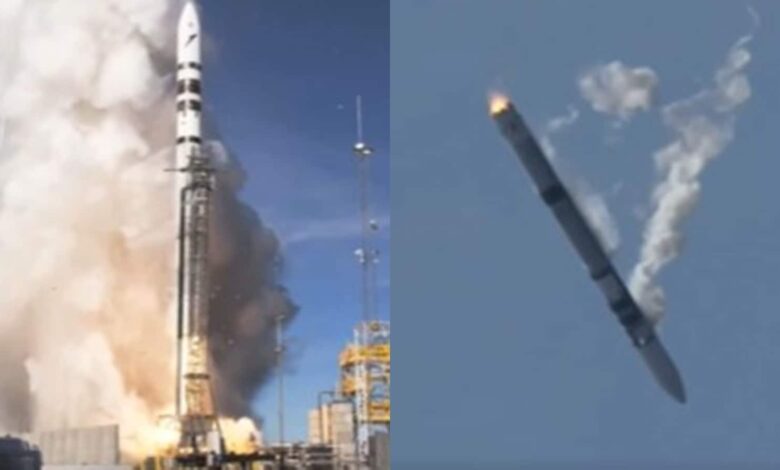Watch: German rocket crashes 40 seconds after takeoff | World News

A test flight of the Spectrum rocket, developed German startup Isar Aerospace, failed on Sunday when the uncrewed vehicle crashed and exploded just 40 seconds after launching from Norway’s Andøya Spaceport. The mission was part of an effort to establish a European presence in the competitive commercial satellite launch market.The video posted NASA Space Flight on X shows that the Spectrum started smoking from its sides and crashed back to Earth in a powerful explosion just after its launch from the Andøya spaceport in the Arctic.
The launch was billed as a horic attempt at an orbital flight starting from Europe. Several European nations, including Sweden and the UK, have been competing to establish their launch abilities to reduce reliance on external players like the United States.
LAUNCH! Isar Aerospace’s Spectrum rocket launches from the Orbital Launch Pad at the Andøya Space Center in Norway.
Overview:https://t.co/64HcC1kqIH
Live Isar/NSF:https://t.co/aGH02uqNum
And failed early in first stage flight. That’s why it’s a test flight. pic.twitter.com/SfolnqhtBu
— NSF – NASASpaceflight.com (@NASASpaceflight) March 30, 2025
According to The Guardian reports, the Munich-based company had earlier stated that a 30-second flight would be considered a success. Although the mission was not designed to reach orbit on its first attempt, the test represented the first commercial orbital launch from a European continent-based launchpad, excluding Russia.
Story continues below this ad
For years, European nations have depended on Russian space stations for launches, but this partnership deteriorated following Moscow’s full-scale invasion of Ukraine in February 2022.
Despite the setback, Isar Aerospace announced that the test provided critical data that will contribute to the refinement of the company’s launch vehicle technology.
Video of Isar Aerospace Spectrum hitting the ground.
Video from @vgnett pic.twitter.com/lnCe90a17l
— VSB – Space Coast West (@spacecoastwest) March 30, 2025
The Spectrum rocket, designed to carry small and medium-sized satellites of up to one metric tonne, did not carry any payload on this initial flight. The test was aimed at evaluating the combination of all systems developed the Bavarian-based aerospace, as per Reuters reports.
Currently, the global satellite launch market is dominated SpaceX, which operates from the United States, and ArianeGroup, a joint venture between Airbus and Safran that conducts launches from French Guiana. SpaceX also runs Starlink, a vast satellite communications network providing global coverage.
Germany’s aerospace industries association, BDLI, voiced support for the launch despite its failure, stressing the importance of European space independence. “Europe urgently needs to ensure its sovereignty in space. Elon Musk’s Starlink is not the only option—nor should it be,” said BDLI Managing Director Marie-Chrine von Hahn.Story continues below this ad
Europe is intensifying efforts to establish its own satellite launch capabilities. Alongside Norway’s Andøya Spaceport, Sweden’s Esrange site and the UK’s SaxaVord Spaceport in the Shetland Islands are also developing their launch programs. SaxaVord, which faced a setback last year due to a rocket engine explosion, is targeting its first satellite launch in the third quarter of 2025, Reuters reported.







